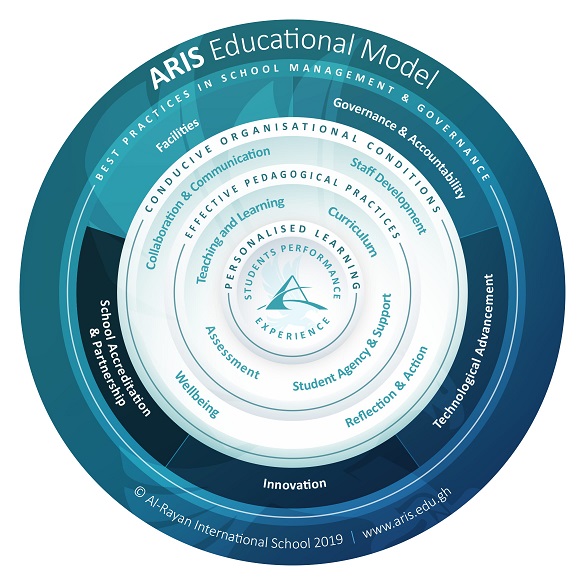Approaches To Learning

ARIS is one of the leading IB World Schools not just in Ghana but Africa as a whole, as it sets on a journey towards inclusion, collaboration, and innovation. The ARIS Educational Model is centered on our students' personalised learning, performance and experiences giving an ode to student agency as they take ownership of their learning.
Plato wondered how someone could learn when s/he could not question what s/he did not know. It is a double-bind paradox. By way of escape, he therefore thought that learning was a process of remembering what had been learned in previous lives. Are you convinced by this hypothesis? Neither are we.
And we do not endorse the educational stance suggested by Locke, that every child is a blank slate, onto which knowledge can be written. This stance denies a basic principle: that among other things, education should bring out the inherent potentials of the child. Al-Rayan signifies a gateway to knowledge; passing through that gate is not a passive process.
The learning at ARIS embraces the educational philosophy of the IB; the teaching and learning are strongly student-centered and thus focus on the education of the person, the whole person, rather than on an assortment of academic disciplines.
In developing a learning theory for the digital age, we must promote the active involvement of students in constructing knowledge for themselves, and in their building of new ideas or concepts based on current knowledge and past experience. The cognitive frameworks of our curricula should build on what the young person already knows, and what they can find out, and should keep pace with their development.
Our pedagogy must, therefore, incorporate a means of self-improvement, a reflection upon itself. As contemporary theories of cognitive development and multiple intelligences continue to emerge, our curricula must be capable of examining them closely, and be able to assimilate new ideas and approaches to the extent to which they suit our students.